|
I remember singing the songs over and over again and thinking, “I can’t wait to teach these to my children.” I envisioned us waking up to greet the day with certain hymns, humming them during chores and tasks, listening to them during meals, or resting our heads with their familiar words in the air. Years later, they are barely known. Yet they resurrect in my heart and on my lips as I wash the dishes after bedtime, exhausted but experiencing a newfound contentedness. “In the Lord, I’ll be ever thankful. In the Lord, I will rejoice. Look to God, do not be afraid. Lift up your voices the Lord is near. Lift up your voices the Lord is near.” At some point, the music stopped. I found myself too frazzled by all the other noise to add any more. There were constant questions to be answered like, “How are popsicle sticks made?” and “Is heaven farther than outer space?” There were sibling squabbles to ameliorate, stomping to quiet, odd raspberry noises during meals made by silly little boys to redirect. Throughout motherhood, I have often found my head and heart pulled in all directions at once – caring deeply for my little family, attempting to be present to each of my children, nourishing them, educating them, creating a clean environment for them, being a good spouse, daughter, sister, parishioner, friend. There have been people to pray for, close by and across oceans. There have been bad habits to overcome. There has been communication to improve on. Works of mercy to be lived. On top of everything, a digital life to participate in and comment on—my own and the lives and reflections and insights and meals of others. How could I be adding more noise? It seemed too much. But Scripture, especially when sung in hymns, is not noise. And so, I found myself the other day on Ash Wednesday standing at the kitchen sink after bedtime singing. “In the Lord, I’ll be ever thankful. In the Lord, I will rejoice. Look to God, do not be afraid. Lift up your voices the Lord is near. Lift up your voices the Lord is near.” In spite of a long day, with dishes still strewn about, sticky counters, and a kitchen floor sprinkled with crumbs, I found myself singing. In spite of the laundry that needed to be moved to the dryer, I found myself singing. In spite of the article I still needed to write and the prayer I still needed to rest in, I found myself singing—with joy and renewed in strength. This is what I love about hymns and Scripture. They so often speak the words of my heart that I cannot find the strength to compose myself. This is so true especially of the psalms. In this case, I was prompted by the Holy Spirit, who reminded me of the words and melody. And I responded with an act of the will. It was a small moment where I said “yes” to the Lord and an example of how he gave me the strength to carry on in my vocation. The words never would have erupted from my heart otherwise. Instead of thanksgiving, I could have muttered complaint and grumbled through my late-night tasks. I could have given up and gone to bed, promising to wake up early and take care of things in the morning. I could have ignored the song of my heart. But as I hummed and sang aloud, I remembered that we were made for praise, for worship. These are so deeply part of our identity and humanity. Creation praises the Creator. When we praise and give thanks, we live out our deepest identity. Selfishness, ego, and pride melt away, leaving humility and a rightly-disposed heart. And that’s something God can work with. I’ve had so many ideas for how to experience renewal this Lenten season, but that evening, the Lord revealed his plan for me. My yearning to quiet the noise is worthwhile and important. I can do that by eliminating as many distractions as possible and creating boundaries for the information I process and encounter. I can set times to check my email. I can put my phone in the other room during the day. I can set a limit to how much I go online or scroll. But I can also keep singing. My goal for this Lenten season is to remember and rest in my belovedness. And I think praising God and singing in gratitude, small as it may seem, will help me remember. “In the Lord, I’ll be ever thankful. In the Lord, I will rejoice. Look to God, do not be afraid. Lift up your voices the Lord is near. Lift up your voices the Lord is near.”
0 Comments
I believe that I shall see the good things of the Lord in the land of the living. -Ps 27:13
The three of us sat around the dining table and cried—a toddler, a little boy, and a pregnant mom. A pitiful orchestra unleashed after a season of transition, a day of disobedience, and the moment that broke the camel’s back: a bowl of yogurt. The toddler had insisted on finishing the yogurt with his hands—which he was told would result in that being his final serving. He looked me in the eye and dipped his little hand in the bowl once more, using it as a makeshift spoon. The yogurt was taken. The wailing ensued. After what felt like 1,000 moments of defiance that day, after consecutive days of a 6-months-pregnant woman chasing small boys in the summer heat with little rest, and after racking my brains out to creatively navigate sibling rivalry, whining, and toddler grumpiness, I put my head on the table and started crying too. My 5-year-old joined in for moral support. After a few minutes of this little concert, I couldn’t help but laugh at the pitiful scene. What must it have looked like to the outside world? Two children and a grown woman competing for the loudest sobs. My husband came in a few minutes later from working in the yard and took over. “Go and rest,” he said. “I’ll take care of the boys.” I shuffled up the stairs, sniffling in defeat, for a few minutes to reset. And I knew I needed to see Him. I knew once again I needed to spend time with my Creator and regroup. Meditating on today’s Psalm from the daily readings reminds us of a beautiful truth: “I believe that I shall see the good things of the Lord in the land of the living.” Whether or not I felt it in this moment of exhaustion and despair, God’s goodness is always there. He stands ready to bestow on us His strength, His mercy, and His love in the here and now—even in the midst of suffering. The Lord never promised the removal of suffering from our lives (which any of us can note by listening to 30 seconds of the news cycle), but He did promise to sustain us and be with us “even to the end of time.” And it is for this reason that I can join the psalmist in choosing to see “the good things of the Lord” right here and now “in the land of the living.” This Psalm is particularly close to my heart because it has been turned into a lovely song by the ecumenical Taize community in the Burgundy region of France. The music of the Taize community was instrumental (no pun intended) in my reversion at the end of my college career and became an easy way for me to “pray without ceasing.” I have come to sing the song inspired by Psalm 27 for nearly a decade: “I am sure I shall see the goodness of the Lord in the land of the living,” the chant goes. “Yes, I shall see the goodness of the Lord. Hold firm, trust in the Lord.” There have been many days in this last trimester of pregnancy when I have had to cling to this belief and hold firm in trusting the Lord. My third pregnancy has brought with it the usual physical demands on the body, as well as the benefit of chasing two toddler boys around in the summer heat. Perhaps I can blame the extra dose of female hormones from my baby girl for the extra emotional complexity I’m experiencing. In my weekly women’s group in which we are reading “This Present Paradise: Spiritual Reflections from Elizabeth of the Trinity,” one of the questions for reflection was “do you ever feel small and insignificant?” I couldn’t help but laugh. “All the time!” I answered, especially now in a season in which I am grappling with my physical and emotional limitations. The independent woman who has always done things on her own, found a creative solution, and seen life in the glass half full perspective can barely walk to the playground, cook a meal, or lift a laundry basket. My easygoing nature has given way to my temper more times than I can count, and my patience is wearing thin. I’ve realized I can’t do anything during this time but cling to God. I am small. I am insignificant. But I am His. The Lord knit me in my mother’s womb, called me by name, and looked at me and proclaimed: “She is good.” The Lord worked throughout time and space to bring me into the fullness of redemption and sent His only begotten Son to die for me. And He continues to pour out His grace, mercy, and blessings on me through His Church, the sacraments, and my loving friends, family, and community. So yes, I am one of billions. I can only do so much. And though I may feel small and insignificant and overwhelmed these days, I can still see and experience the goodness of the Lord right here and now—in the land of the living. Hold firm. Trust in the Lord. For more resources on Marriage and Family, please click here. When the COVID-19 pandemic began and so much seemed outside of my control, I turned to prayer as a source of comfort, nourishment, and stability. Favorite Catholic podcasts, powerful homilies, Gospel-inspired music, Scripture reading, and devotions like the Rosary kept me grounded in a higher reality than the confusing, dark, and humbling one I faced. Perhaps I felt the need to overcompensate in a time when I couldn’t physically receive the Eucharist. The lack of physical Communion meant I searched for spiritual, mental, and emotional communion with the Lord in other ways I found fruitful. In this way, times of trial can bear much fruit—suffering sharpens our eyes to the eternal and true. It is sobering. Surrendered to God, suffering can be the most direct path of conversion and redemption. As the pandemic continued and I was able to adjust to my new “normal,” my sense of emergency slowly began to fade. I found ways to be comfortable and to continue meeting needs like friendship, worship, and rest. No, everything was not as it had been. Life was still a shadow of its former glory. And yet, I had found ways to cope. As this trajectory continues with the reopening of society in many ways, I have begrudgingly found that my deep prayer life has slowly faded. Becoming more of a checklist than a time of renewal, my prayer time is filled with distraction and noise. I’ve come to realize that I would rather fill my time with the noise—albeit good noise—of a Catholic podcast or homily instead of turning everything off and filling my time with God Himself. I’m more comfortable hearing others talk about God and their spiritual insights than talking to God. I’m also more comfortable talking AT God than WITH Him. I have a lot to say, but am not spending time listening or receiving. Finally, once I do settle down to pray, my tasks, chores, and rambling thoughts bombard me. My prayer time is filled with noise and distraction. Why is it easier for me to scroll through a newsfeed of beautiful images and consumer goods than to thumb through my Rosary meditatively? Why is it easier to respond at all moments to the latest texts in a never-ending group thread than it is to respond at all moments to the promptings of the Holy Spirit? Why is my heart more easily captured by the words of the media than by the Word of God? For perhaps the millionth time, I must face again a thorn in my side that prevents me from greater holiness: noise. “Noise, the grand dynamism, the audible expression of all that is exultant, ruthless, and virile—Noise which alone defends us from silly qualms, despairing scruples, and impossible desires,” says the demon Screwtape in C.S. Lewis’ classic, The Screwtape Letters. He continues, “We will make the whole universe a noise in the end. We have already made great strides in this direction as regards the Earth. The melodies and silences of Heaven will be shouted down in the end.” Lately in my life, it seems like Screwtape and his friends are succeeding. I’m having trouble hearing the melodies of Heaven amidst all the noise. And can’t we all admit to knowing this deep down—that much of our lives is an endless stream of noise and distraction threatening to drown out the still small voice inside? I reflect on these things once again while reading a powerful book and meeting virtually with other women--This Present Paradise: A Spiritual Journey with St. Elizabeth of the Trinity. Elizabeth, through the author Claire Dwyer, is shaking me from my complacency and passing through the distractions to help resurrect my heart. This young French Carmelite nun who lived over a hundred years ago mastered the interior life of prayer and encourages all to do the same—regardless of their vocation in life. I know I am called to more than what I’m filling myself up with; an hour of scrolling through items on sale or watching a home renovation show will never compare to fifteen minutes of virtual Adoration or a few decades of the Rosary. Any time consecrated to God is not returned unsanctified. In times of greater stability, comfort, or complacency, I’m also reminded of the Scripture passage about the wise virgins at the gate. We are called to fill our lanterns with oil as we await the Bridegroom so that we will be prepped and ready for His return. I have personally found that my preference for news feeds, shows, or internet browsing fills my lantern with something akin to water rather than oil, and so I am using this season of Ordinary Time to recommit to a quieter, more fruitful prayer life. Below are a few things I have found helpful for overcoming spiritual distraction and ensuring daily prayer:
As the world continues to reopen in ways that give us hope, I invite you to reflect on your prayer life throughout the pandemic months and set goals for yourself during this season of Ordinary Time. In the end, may we find that the melodies and silences of Heaven triumph over the noise of the world.
As I write this, my laptop is balanced precariously on my knees because there is no longer space on my lap. My baby girl presses into my belly button with each hiccup, and I can’t help but think about her arrival. In the next three weeks, I will feel her hiccups against me from the outside. I will know her hair color and her features and I will breathe in her perfect newborn scent. Until then, I cherish the last days of my two-year-old being the baby, of my family being one of six instead of seven, and the time I have to prepare for her to enter the world.
First time mothers and mothers of many can easily relay their baby preparedness to-do lists: rinse the onesies, install the carseat, visit the doctor again. Physically and mentally, we work to be ready to welcome the sweet new life we created. I’m embarrassed to admit that I did not make plans around my spiritual readiness for a newborn until the birth of my fourth child. In all of my business preparing my mind and body for labor and delivery, God’s role in this life-event has been a mere afterthought. Confessing this to other mothers and mothers-to-be has revealed that I am not alone in this oversight. Being consumed by the physicality of what is happening to our bodies can edge out any focus on what is happening to our spirit. This time, I’m changing that. Through Seeking-Truth In Jesus Calling: Enjoying Peace in His Presence, Sarah Young writes, “When you seek My face, put aside thoughts of everything else. I am above all, and in all; your communion with Me transcends both time and circumstances. Be prepared to be blessed bountifully by My Presence, for I am a God of unlimited abundance.” The process of labor, delivery, and early mothering is one of humility. I deeply desire a window into the future so I can know and prepare for the date and time this baby will come, how delivery will go, and what the outcome will be. Of course, these are things I cannot know. By seeking Truth in His face, in the Word, and in the sacraments, I am invited to rest in the peace of what I do know: my baby and I are seen and known by the God of abundance. He alone knows what is to come, and His plan for me is good. Through Worship This truth leaves me in awe of our God, and I cannot help but to praise Him. My favorite form of worship is music, and I want to bring that into the delivery room. With each contraction, I can lose myself to the words celebrating His presence in the pain. It reminds me of His strength when I feel that I have come to the end of my own. Words of praise will be some of the first my baby hears. My labor playlist is available for you here. Through Prayer One of the many gifts of prayer is its communal nature. This has been a beautiful way to invite those we love into the process of preparing for the birth of our baby, and even into the delivery room. This pregnancy, we have invited our loved ones to pray a novena leading up to the baby’s due date. Our child’s godparents alongside many of the friends who witnessed our wedding, and vowed to help uphold us in our vocation to family life, will join us in the novena to Saint Mary Magdalene, praying for the safe delivery of our baby. (It starts today-- join us!) Other favorite prayers leading up to labor and delivery include: -St. Gerard Majella Novena for Expectant Mothers -Novena to Mary, Mother of God -Prayer for the Birth of a Child We invite our friends to pray for us, but we also invite them to offer their intentions so that we might pray for them. As Catholics, many of us are familiar with the phrase "offer it up." This means that we can enter into the redemptive suffering of Christ when we "offer up" our own suffering, work, or joy. The Catechism says, “The cross is the unique sacrifice of Christ, the ‘one mediator between God and men’ [1 Timothy 2:5]. But because in his incarnate divine person he has in some way united himself to every man, ‘the possibility of being made partners, in a way known to God, in the paschal mystery’ is offered to all men (618).” It is my hope to offer up the pain of childbirth for the cares and concerns of the people we love the most so we ask: How can I "offer up" the end of this pregnancy and my labor for you? Preparing my heart to walk alongside Jesus through the last days of pregnancy, childbirth, and recovery is the most important preparation I can make. Together with my Heavenly Father, the onesies will be cleaned and the hospital bag packed. In His presence, this child will come into the world with praise. My life and hers, our being, our all, are in Him and with Him, and for Him. And so, Amen. For more resources on Marriage and Family, please click here.
Being a dad is heroic stuff. It demands strength, hard work, a quick wit, a compassionate heart, and an unwavering commitment to the health and well-being of this cute little stranger that has captured your heart. Being a dad is usually intentional. Being an adoptive dad is intentionality on steroids. If all men look to St. Joseph as a guide, companion, and mentor, we will have a more just, prosperous, and peaceful world. While I am writing this reflection for all dads, I want to address young dads or men who are thinking about being dads. My hope is that St. Joseph will awaken in you a clear-eyed grasp of the “fiat” or “yes” of fatherhood. Let me share where I am coming from. I am an adoptive dad with three sons; the oldest is married with three kids of his own, the middle son is headed to college, and the youngest will be a high school junior in the fall. A life-long Catholic, my professional life is in the Church: campus ministry, priestly formation, and mission. Barb and I, married 23 years, wrote a book a few years ago – Rise, Take the Child – Reflections on the Vocation of Adoption. Joseph was an “in the background” saint to me until I became an adoptive dad. In my office, I have an icon of the Holy Family. Our oldest was baptized on the Feast of the Holy Family. In that icon, Joseph is holding Mary (on his right) and Jesus (on his left). He is holding Mary, who is holding Jesus, and he completes the “embrace” of Jesus. Who is this “third person” in the Holy Family? I wanted to encounter Joseph the man. I examined my assumptions. I thought of Joseph as an old man even though biblical evidence suggests he was a strong man, capable of protecting his family, leading them into exile in Egypt and back home, and establishing himself as a successful carpenter. There is nothing “romantic” about Joseph if Shakespeare’s Romeo is our model of a man in love. I find Joseph, in Franco Zeffirelli’s film Jesus of Nazareth, is authentically conflicted; balancing the longing for the completion of marriage, his desire for Mary, the promise of family, the hurt and anger he feels when he learns Mary is pregnant, and his deep desire to do good and avoid evil. Finally, contrary to Joseph’s Song, which I like in many ways, Joseph was not a “simple” carpenter. In the time of Jesus, and even in our time, a carpenter is much more than a laborer. Carpenters were craftsmen – highly skilled and “essential” for society. Some, perhaps even Joseph, were artists. When we pray with Saint Joseph, we need to see him first as a man with his own story, network of relationships, aspirations, work, skill, and deep, abiding faith. This is Joseph, Mary’s tender and loving betrothed, a fierce and decisive protector, a skilled and dedicated provider, and a humble and faithful father who raises Jesus, with Mary, into manhood in first century Galilee. We know the most about Joseph from the Gospel of St. Matthew, which records his four dreams. In his first dream, Joseph “wrestles” with what the law of his faith teaches and what his heart says. Fatherhood is born out of love of a woman. Heterosexual men “long for” the completion a woman provides. This sexual longing (eros) finds its perfection in self-sacrificing love (agape). Joseph does not ignore Mary’s pregnancy – he embraces it as an act of faith and love. He sets aside his fears, welcomes her into his home as his wife, and witnesses God’s saving act unfolding in and through her. His second dream compels Joseph to protect the Mary and the infant Jesus from Herod. Mary, in Luke’s Gospel, “makes haste” to visit her cousin, Elizabeth. Joseph, in St. Matthew’s Gospel, “makes haste” at night into an unknown exile to Egypt, away from the threat of Herod. I am sure there were other dangers on the way to Egypt and challenges in finding work and establishing a home there. There is far less drama in the third dream. Joseph was able to hire himself out as a skilled craftsman and establish a home in Egypt. And yet, he is called by God to help write the great “theo-drama” of salvation so that Jesus, his adoptive son, can fulfill his destiny as God’s “only begotten Son” who is “called out of Egypt.” In some ways, this is Joseph’s “fiat,” his “yes” to God. Through his actions, Joseph accepts the responsibility of raising Jesus as a Jewish man among his people. The fourth dream, on the road home, points to Joseph as provider – choosing a place where Mary and Jesus would be safe, where Jesus could grow “in wisdom and age,” and he could provide for them through the work of his hands. St. Luke’s Gospel points to the peace and tranquility of this domestic time (sometimes referred to as the “hidden life”) for Joseph when he tells the story of Mary and Joseph finding Jesus in the Temple. Imagine the frantic search for Jesus followed by Joseph seeing and hearing his son teaching the elders of Israel in the Temple, the most sacred place on earth. Imagine the rush of emotions – the relief, the wonder, the astonishment. As I prayed with this passage, I was reminded of my experience of my own son playing basketball. He was about ten or eleven years old, he was fouled, and he cautiously approached the free-throw line. He took command of the ball, set his body, and did a perfect shot. Nothing but net. It took my breath away. Others too. We just did not expect “perfection” from someone so young. Was that what Joseph felt when he heard Jesus teaching the elders of Israel in the Temple? In many ways, every father is called to be an “adoptive” father in the sense that they, too, must be intentional, like Joseph, in how they love their children. First, love your wife and partner with her to be a family. Protect her and your children from all that is evil with your strength, perseverance, and decisiveness. Provide for your family through your labor, your craftsmanship, your artistry. And raise your children to adulthood through the witness of your life, integrity, and faith. Pope Francis declared 2021 the Year of St. Joseph, and he wrote a wonderful apostolic letter, Patris Corde (With a Father’s Heart), that provides further insights into this ordinary hero, this extraordinary “every man,” who raised to manhood the Messiah, the Son of the Living God. Click here to read more about St. Joseph in this post written by Barbara and Don McCrabb.
Walking into the endzone of FedEx Field of the Washington Football Team made everything feel real—not some fantasy about playing professional football, but the reality of graduating college and entering into a new stage in life. In the middle of May, I graduated from The Catholic University of America at FedEx Field. It was an experience filled with much joy, but also some uncertainty. The joy and happiness were palpable throughout the stadium. It was rewarding seeing four long, hard years of work and late nights come to fruition. I felt a happy sense of relief that we had made it through the chaos and craziness of the past three semesters amidst the pandemic. It was exciting getting to celebrate with our friends and family—a truly special ceremony. Later that day, I began to feel some uncertainty mixed in with my joy. Friends were moving back home or across the country. Some friends were starting new jobs while others were going to graduate school. Some friends were younger and would still be at school another year while other friends had full-time jobs. There was a lot still up in the air. Over the past couple of weeks since graduation, I have reflected on that uncertainty and realized that it relates to a lot going on today. There’s uncertainty in starting a new job, in moving, or any type of new beginning. There’s uncertainty in returning to work in person maybe for the first time in a long time. There’s even uncertainty about traveling and going on vacations with differing restrictions. As I reflected on the uncertainty I felt from graduating college, I was comforted by one simple fact: the same Jesus who was present and working in my life before will be present throughout the uncertainty. During the Nicene Creed, we say, “I believe in one, holy, catholic and apostolic Church.” In these four marks of the Church, catholic is referring to the universality of the Church. This is what I found comfort in. Even though I wouldn’t be going to Mass at Catholic University anymore, Jesus would be present at Mass at my new parish community. Even though I wouldn’t have the ability to go to a chapel as frequently, Jesus would still hear my prayers throughout my workday. I found this realization comforting and encouraging – I knew Jesus would be present throughout the uncertainty and the change. I began to think of ways that I could actively embrace the uncertainty by welcoming Jesus into the small day-to-day actions that I knew would come about because of the changes. I set two goals for this uncertain time:
As the mother of a young toddler, I’ve found that life is moving pretty quickly. One moment I’m running after him so he doesn’t grab the dog’s water bowl, and the next, I’m reading his little children’s Bible for the third time in 5 minutes. I’m finding that my toddler is learning so much from his environment. Every day, he can say new words or hum or sing or dance. When I hear him say, “Mama and Vinny,” I just stop and think about Mary.
I love to imagine her as Jesus’ mother: patient and loving, giving hugs, teaching him and walking among flowers. I picture the two of them laughing and playing in the sunshine filled with joy. But I also imagine her with Jesus throughout his life. I start by thinking of Jesus as a toddler--maybe when they were still in Egypt. He likely picked up sand and tried to eat it like my little one would or looked at a camel or water and began to say his first words. Then, I can imagine Mary and Joseph both searching for Jesus while he was not where they thought he should be, but instead in the Temple with teachers showing how much he knew about Scripture. She would be proud of him and his knowledge, maybe with a pang of understanding of his purpose on earth. Then I imagine later on in his first miracle at the wedding at Cana, when she really knew it was time for Jesus to begin his ministry. She supported her son, but also knew it was time to begin God’s work. Meditating on different Scripture passages and moments in the life of Christ can deepen our relationship not only with him, but with the many powerful witnesses to the faith like Our Blessed Mother. Reflecting on moments with my toddler and my own motherhood has strengthened my relationship with Mary over this past year. In this month of May, let us turn to Christ’s Mother and celebrate her motherhood to all of us. Mense Maio, an encyclical by Pope Paul VI which came out on April 29th, 1965 discusses prayer during May for the preservation of peace and the powerful intercession of our Blessed Mother in a variety of ways. As I was reading, I liked how Pope Paul VI mentioned different areas that need our prayers. In the twelfth section of the document called “Plea for Mary’s Help,” he writes, “she graciously lend(s) an ear to the devout pleas of those all over the world who beg her for peace.” As we begin the Marian month of May, let us think about the people in our lives, maybe those marginalized or neglected who are in desperate need for our prayers and petitions. Let us turn to Our Blessed Mother and beg her for peace in our lives and throughout the world. To read more blog posts about the Blessed Virgin Mary, please click here. I felt for my husband. He had just hung up the phone with a family member, letting him know that we would not be attending a birthday party. “That was so uncomfortable,” he said, “I can tell I hurt his feelings.” The party would be fun, but jam-packed with people and a risk for our family that we were not yet ready for in COVID times. I can relate to the discomfort. It had only been a week since a friend declined an invitation to dinner on our patio, citing the very same reasons that we had just offered to our family member: they weren’t ready. Receiving her text, however gracious it was, made me feel like she believed us to be dirty, reckless, and wrong in our choices. It is a situation we find ourselves in time and again: assessing risk and making decisions that bear the weight of our mental and physical health, all the while revealing a supposed worldview and delivering a perceived judgement. At best, these decisions and conversations are the source of relational aches. At worst, they create genuine conflict and damaged friendships where hurt hearts struggle to heal. The rapid sequence of these interactions and the rate at which they seem to be occurring has given me pause. Each time, I worry about the repercussions of choosing not to attend an event at which I would be wearing a mask while no one else is--will my friends feel judged by me? Am I hurting them? How do I balance that with the decisions my husband and I have intentionally made for our family? Then, what do I do with the pain when friends and loved ones choose not to be around me? What do I let that say about who I am, and how they feel about me? Most importantly, how do I honor my role as a disciple of Jesus in each of these interactions? As I try to remember to do with all things, I sought the answer to these questions by looking to Jesus. God’s Word, living and active, has plenty to say about navigating these complex moments. Be merciful, just as your father is merciful. Luke 6:36 When I live wrongly, am uncharitable in my words or actions, or neglect to walk in faith, the Lord extends his mercy to me. I am reminded here that when I feel hurt by the manner in which an invitation is declined or I cannot see eye to eye with a loved one, that I am called to react with mercy. It is likely that I do not know the intricacies of the other persons’ thoughts and feelings around pandemic living. I don’t know the details of their story. I do know that I am commanded to love my neighbors, even if they are making different choices from me. Search me, oh God, and know my heart! Try me and know my thoughts. See if there be any grievous way in me, and lead me in the way everlasting. Psalm 139:23-24 I feel heat rise up in me when I interact with someone who is living differently from my family, even though I know it shouldn’t. I bear the responsibility of investigating the rise in tension that I feel, and bringing it before Jesus. I consider whether I am seeking validation in my choices from those around me or from God. I reflect on where my worth and acceptance come from, and if a change needs to be made. An assessment of my words and actions allows me to remain in truth, confess my sin, and love more like Jesus. He said to them, “These are my words which I spoke to you while I was still with you,” [...] Then he opened their minds to understand the scripture. Luke 24:44-45 Jesus spoke these words to his disciples upon seeing them for the first time after his Resurrection. Surely, in their humanity, they believed they understood the permanency of death and needed no additional data. Still, their minds were opened, they took on new information, and their beliefs changed. When I humble myself to hear thoughts and ideas that challenge what I believe and prove me under-informed, I grow. Allowing myself to be open to the possibility that the person with whom I’m in conflict with might have something to teach me allows me to love them well and avoid pridefulness. Come to Me, all who are weary and burdened, and I will give you rest. Matthew 11:28 This has been an exceptionally tiresome period of life. My mind feels perpetually in high alert, my kids go from in-person schooling to virtual learning, and back again. The world feels at odds. When I’m exhausted, it’s hard to bring my best self to my friends and family, to introspection, and to take on more and challenging information. Some days I’m barely getting by. It’s why it has become essential for me to find rest in the Father. The more time I spend in prayer, in the Word, and participating in the sacraments, the greater my bandwidth will be to face the difficult interactions that will surely arise. I turn to my husband and we walk through what God has laid out for us here. In charity and humility, we work to accept that what is right for our family is likely different for the families around us. We are affirmed in who God says we are, and we rest in that. And when we are faced with this situation again next week or the week after, we will do our best to remember these truths. We will try, in this and in all things, to love like Jesus. For more resources to grow spiritually during the COVID-19 pandemic, please click here.
It seems that each day we check the news to discover that another politician, producer, actor, or celebrity figure is being exposed for scandal or abuse. Many of those who have for years been hailed as the main influencers of public opinion, policy, and taste have in a stunningly short span of time lost support or credibility. Many of those who were on top of the world have been, we could say, deflated and dethroned. I have been pondering this lately as the Church prepares to celebrate the Solemnity of the Ascension of the Lord. Each Sunday in the Nicene Creed, we profess Christ’s ascension, “He ascended into heaven and is seated at the right hand of the Father.” The ascension is recounted at the beginning of the Acts of the Apostles (Acts 1:6-12). Theologically, we do not envision Jesus ascending like a balloon into the sky, but a king ascending a throne. The Feast of the Ascension celebrates the exaltation and enthronement of Jesus as King and Messiah at the right hand of God the Father in heaven. As many of us may be scientifically literate and democratically-minded citizens of the twenty-first century, we may think all this talk of thrones and kings and heaven may seem like it belongs to a world that has long passed away. But if our recent headlines have proven anything, what has not passed away is the perennial pursuit of power and our tendency to underestimate our willingness to use it in potentially harmful and self-aggrandizing ways. Power in and of itself is not an evil thing, and watching people fall publicly is not a cause for celebration. I think instead the present reality invites us to pause and reflect on—in light of God’s reality—the pursuit and exercise of power both in society and in our own lives. In truth, power is not something that belongs only to the powerful. Power exists across any human relationship: husband and wife, parent and child, teacher and student, boss and employee, and the list is endless. We are influenced vertically by our superiors and horizontally by our peers. Ideally, we work together to achieve the common good and common goals by sharing and exercising power in the right doses and ways. But I think if we’re honest, we all have our own way of being out of balance, tipping the scales. So, what does this all have to do with Jesus, who we call the All-Powerful One? As exalted King and Messiah, Jesus overthrows the love of power with the power of love. The Ascension is not a power grab that Jesus will use to control people and outcomes. Rather, we hear Jesus tell the disciples that once he has taken his seat on God’s throne, “you will receive power when the holy Spirit comes upon you, and you will be my witnesses in Jerusalem, throughout Judea and Samaria, and to the ends of the earth” (Acts 1:8). As disciples, we are not separated from Christ by a glass ceiling. Yet as disciples, we have to be careful where and how we exercise this power given to us in the name of Jesus. One of the images in Scripture of the Holy Spirit is fire. It is a great metaphor for power. Our stewardship of God’s power can bring light and warmth, yet it can also burn if used irresponsibly. I suspect today that much of what compromises our evangelizing message of Jesus’s kingship stems from the ways Christians have abused earthly power in the name of God. The Gospel and St. Paul preach a radically different alternative: the conviction that our human exercise of power more fully manifests Christ when it is surrendered than when it is wielded. So, I propose instead: What happens when we dare to profess Jesus enthroned and exalted, to receive the power of his Holy Spirit, and then lay it down in the service of the Gospel? Question for Reflection: How is Christ’s example of kingship and power different from what we see in the world?
The family is the environment in which we learn to relate to others, where we are cared for and loved. But it can also be a laboratory for sadness, bruising, and wounding. Moments of grace separate one from the other. Mere humans living together in close proximity in the home, sharing the nitty gritty of life, is full of all kinds of challenges! How many times do we have a misunderstanding and have the sense to apologize? Dealing with people is messy business and hurt happens. It is heroic to operate in the grace of the Holy Spirit to ask forgiveness when we hurt one another. The simple ability to look past our own feelings and see how we impact others – that is life-changing behavior. “I’m sorry that what I did was hurtful to you. Please forgive me”—this is humility, and when we operate at this level within our family, we can change the world. As I see it, the two most important virtues of a holy family are patience and forgiveness. Thank goodness perfection is not required, just steadfastness.
The readings from the Mass for the feast of the Holy Family, which we celebrated on the first Sunday after Christmas, are beautiful reminders of how to behave and interact with each other in our families. “God sets a father in honor over his children; a mother’s authority he confirms over her sons. He who honors his father atones for sins; he stores up riches who reveres his mother. He who honors his father is gladdened by children, and when he prays he is heard. He who reveres his father will live a long life; he obeys God who brings comfort to his mother. My son, take care of your father when he is old; grieve him not long as he lives. Even if his mind fail, be considerate with him; revile him not in the fullness of our strength. For kindness to a father will not be forgotten, it will serve as a sin offering-it will take lasting root.” Sirach 3:2-7, 12-14 This passage expounds on the fourth commandment because Jesus wanted us to understand the importance of family as the cornerstone of society. In her acceptance speech for the Nobel Peace Prize in 1979, Saint Mother Teresa said, “My prayer for you is that truth will bring prayer in our homes..[and] we will begin to love. And we will love naturally, we will try to do something. First in our own home, [then the] next door neighbor in the country we live, [then] in the whole world.” In our progressed world, we think of evangelization and mission in terms of global work, but we cannot achieve spreading the faith if we do not practice in our own families. Colossians 3:12-21 gives us further practical instruction on how to relate to one another. “As the chosen of God, then, the holy people whom he loves, you are to be clothed in heartfelt compassion, in generosity and humility, gentleness and patience. Bear with one another; forgive each other. The Lord has forgiven you; now you must do the same. Over all these clothes, put on love, the perfect bond. And may the peace of Christ reign in your hearts, because it is for this that you were called together in one body. Always be thankful. Let the Word of Christ in all its richness, find a home with you. Teach each other, and advise each other, in all wisdom. And whatever you say or do, let it be in the name of the Lord Jesus, in thanksgiving to God the Father through Him. Wives, be subject to your husbands, as you should in the Lord. Husbands, love your wives and do not be sharp with them. Children, be obedient to your parents always, because that is what will please the Lord. Parents, do not irritate your children or they will lose heart.” What makes the family so extraordinary is all the goodness that can come when we learn to love. We die to self in saying we are sorry for our offenses. We grow in virtue when we focus on the needs of others instead of ourselves. A quote often attributed to G.K. Chesterton states, “The most extraordinary thing in the world is an ordinary man and an ordinary woman and their ordinary children.” God has set an incredible task before us – to love the people in our family through our actions and our attitude. This is the heart of radical evangelization. And it will change the world! For more resources on marriage and family, please click here.
I opened the email from my aunt, half amused and half bewildered. Before me was a message for the whole family: Rules for Thanksgiving Dinner. Per her request, our Thanksgiving meal would be void of any conversation about COVID-19, politics, Church, racism, the media, or yard signs. “Let’s just take a few hours to forgo the division and just enjoy one another,” she wrote.
Initially, I balked at the idea that my family would need ground rules to be able to keep peace during our time together. But frankly, my aunt wasn’t wrong—I don’t know if I have ever felt more disunited from my family, friends, and neighbors. Every post, article, and opinion adds to the climate of contentiousness. I waver between holding my tongue for fear of saying the wrong thing and lambasting innocent bystanders with tidal waves of repressed contempt. As I read today’s Gospel, I took the words of Christ and interpreted them to excuse the chasm the current cultural climate has created between the people that I love. “See! Jesus said it would be this way. It’s right there in Luke. ‘Do you think that I have come to bring peace? No, I tell you, but rather division!’” Somehow, I do not think the division caused by commitment to party lines and dedication to political ideologies is what Jesus had in mind. Rather, Jesus saw commitment to Him as source of division. The Holy Scriptures remind us that we, as disciples of Jesus, will stand apart from nonbelievers. Our lives will look different from those whose hearts have not been claimed for Christ as we live out our calling to love. The reminder of this truth forced me to re-evaluate. Admittedly, the separation I feel from my fellow Catholics is not driven by my love for Jesus. Instead, it is tangled in a desire to feel safeguarded by policies and politicians, who do not have the redemptive power of the Savior. It is fueled by a desire to be right, and in control. No, this is certainly not what Jesus had in mind. I will stand divided against my neighbors and friends because of my relationship with Jesus. My love for Him will not always be accepted, and my obedience to Him will make my life look different from the friend who has not yet encountered Christ. So when I feel the ache of division and the discomfort of separation I consider the following:
If I am going to feel the sting of division in this life, I want it be for a worthy reason. I will let myself feel the otherness of being a light in the dark. I will cling to the unifying Body of Christ as the world chooses sides around me. I will hope in the promise of the world to come, where there is no strife or division, only love. For more spiritual resources to accompany you during COVID-19, please click here.
The month of September is ripe with themes of renewal. Schools begin a new academic year. Some businesses start a new fiscal year. The season of autumn is bright with arboreal colors as some trees begin to turn dormant. Fields and gardens are harvested.
Those of us with yards know now is also the time to prepare and reseed our lawns for new grass to grow. For many, it’s a labor of love to cultivate the land. First the land needs clearing. Rocky soil demands aeration. Soil testing will help with fertilizing. And getting the right seed is critical! Furthermore, once planted, the new seed must be constantly watered, watched, and protected from harsh elements and nefarious agents. Is there a lesson from all this? Yes, great results require great effort, but we are also reminded of the parables of the sower and the weeds (Matthew 13:1-30). What I always liked about these parables was that our Lord Himself explains them so clearly: the Word of God is given to each of us; how it takes root is up to us. The seeds in the parable represent the deposit of faith we have each been entrusted to grow, nourish, and protect as baptized Christians. For those of us with children, we are especially aware of the great gift and responsibility of entrusting the Faith to our descendants. So precious and critical is this sharing that the Church urges parents to have their children baptized without delay. During the Rite of Baptism for an infant, the priest or deacon says to the parents: You have asked to have your child baptized. In doing so you are accepting the responsibility of training him (her) in the practice of the faith. It will be your duty to bring him (her) up to keep God's commandments as Christ taught us, by loving God and our neighbor. Do you clearly understand what you are undertaking? As is the case with any landscaping, the work of spiritual cultivation cannot be underestimated or haphazard. Raising a child in the Faith begins and is centered on the life at home. The environment of faith is so much more than memorizing Scripture or parts of the Catechism; the Faith must be lived! A family that prays together, goes to Mass regularly, is firm in morality and pursuing virtue, and encourages service and charity takes seriously the charge given at Baptism. The deposit of faith is planted at the immersion and anointing of the child during the rites of the sacrament; the family then works and tends to and cares for the germination and growth of this divine inspiration. As good seed sprouts among weeds, so too will the child: he or she will encounter the ways of the world that are ignorant of God; he or she will be tempted by sin; he or she may wander as a lost sheep, though the identity claimed at Baptism never disappears. As baptized believers, do we understand and appreciate what has been given to us? Do we help cultivate our spiritual lives in a way that fosters growth and true life? Pope Francis has urged us to remember and celebrate our baptism date: To forget our baptism means to expose ourselves to the risk of losing our memory of what the Lord has done in us. We risk ending up considering it only as something that happened in the past, and not the Sacrament in which we became new creatures and were clothed with Christ, made part of the relationship of Jesus with God the Father. Thanks to Baptism, we are also able to forgive and love those who offend us and do us harm; we are able to recognize in the last and in the poor the face of the Lord who visits us and is close to us. In short, more than a sociological moment that inscribes our name in the parish register, the day of our baptism constitutes a commitment and the identity card of the believer. The Sacrament of Baptism continues to sustain us through life: we are children of the Most High God! We may go through periods of spiritual drought or darkness, but we can find refreshment and renewal by attending Holy Mass, washing away sin through repentant confessions, and sustaining lives of prayer, faith, hope, and love. Then, having known the fruits of labor initiated by our parents, we can indeed be drawn up as part of the Lord’s bountiful harvest as He Himself has planted: “It [is] very good.” In high school we had a religion teacher, named Mr. Matthews, who used to tell us not to worry about memorizing anything from his class but these words: “Love God with your whole mind, heart, soul and strength. Love your neighbor as yourself.” He would say, “If you come back and see me twenty years from now, I’ll be happy if those words are all you remember.” Mr. Matthew’s motto was inspired of course by Matthew 22:34-40, which happens to be today’s Gospel reading for the [Optional] Memorial of Saint Louis of France. In this text, Jesus clarifies that love of God and love of neighbor are the two greatest commandments on which everything else depends. To put in another way – without love, we are nothing (1 Corinthians). The pandemic has shown just how much we need this love in our world. And while it may be challenging to connect with one another right now, there are still ways we can share love with others from wherever we happen to be. Three Small Ways of Loving God
Three Small Ways of Loving Neighbor
Remember also, we are called to “love your neighbor as yourself.” During this unique and challenging time, are you taking care of your own spiritual, emotional, and physical needs? If you aren’t sure, it may be worth spending some time today writing down a short list of ways you can practice healthy self-care. If you liked this article, be sure to check out “Living the Corporal and Spiritual Works of Mercy During COVID-19” and “Mental Health and Coronavirus.” “Joy is prayer, joy is strength, joy is love, joy is a net of love by which you can catch souls.” -St. Mother Teresa of Calcutta Throughout history, mankind has endured plagues, wars, and all sorts of crises that threaten our existence and make the day to day seem unbearable. In these past several months, the world has experienced the global effects of the novel coronavirus pandemic. Our country is also facing ramped up civil unrest. However, as Christians we are called to persevere with joy. As James 1:2-4 exhorts us: “Count it all joy, my brothers, when you meet trials of various kinds, for you know that the testing of your faith produces perseverance and perseverance must complete its work so that you will become fully developed, complete, not deficient in any way.” We can look back over two millennia and witness the hope that has always been present in the darkest of circumstances. Over and over, God our merciful Father remains with us, equips us with strength, and encourages us to dwell with Him in order to endure all things with joy. Furthermore, we have many examples of holy men and women who have stood steadfast in faith through great trials as joyful ambassadors of God’s love and mercy. During these times, I have felt the pangs of doubt, discouragement, and fear. I am completely aware of my smallness and my vulnerability. I keenly recognize that I need help so that I can find peace amidst hardship and uncertainty, and I daily choose to pray for guidance and courage to walk in faith. I am grateful for parents who raised me in the Church, taught me the power of prayer, and nurtured me in an environment of faith. I am grateful for my parish family who stand together to build up the Body of Christ in our community. I am grateful for a stalwart husband who shows me daily how to immerse myself in the loving arms of Jesus by attending Mass, reading Scripture, praying devotions, and asking for the divine blanket of protection and provision that only comes from Him. I am grateful for my married children who witness their sacramental love to all by living their marriage covenant. I am grateful for children who share their gifts to fill our home with laughter, creativity, and beauty. I am grateful for grandchildren who are joyful and full of curiosity and excitement and so easily make me forget about the troubles of the world. I know that I am puny, weak, and small, but God made me for love and reminds me through all these people—and many more—that He is always with us, giving us what we need to gallantly march through the nitty gritty of life. This gives me cause for great joy! How we behave determines the success of our mission as ambassadors for Jesus. We are told in Scripture to remain in God and to use the gifts of the Holy Spirit to navigate the messiness of this life. We are commanded to love God, others, and ourselves no matter the circumstances. The fruit of living in love is a joyful countenance. When we practice surrendering our doubts and fears and choose to act in faith and love, peace is a direct outcome. When we live out of an attitude of peace, we are unbound and able to exhibit joy in all things. St. Teresa of Avila encourages us: “Let nothing disturb you, nothing frighten you, all things are passing, God never changes. Patient endurance attains to all things. Whoever possesses God is wanting in nothing; God alone suffices.” As Christians, we are called to be the living reflection of our Lord and Savior. As we traverse this particularly troubling time, we strive to be beacons of hope to those despairing, lost, and without a foundation of faith. We are all commissioned to share the love and mercy of God to all we come in contact with. It is not a suggestion, but a mandate from our baptism. No matter how inadequate we think we are, if we surrender to God’s will, He will supply all we need to make any situation bearable and even joyful. There may be uncertainty, strife, devastation and hardship around us, but the heart of Jesus, who is all love, is within the soul of each of us. We are called to make it manifest through our acts of kindness, gentleness, patience, forgiveness and service. Each of us, one individual at a time, has the power to bring peace and joy to others as we continue to navigate the day to day. Below are some practical tips for remaining steadfast in faith and witnesses of joy:
Together, each of us mere mortals can build an environment of joy—a joy which will make all the difference in our hurting world. The world has been immersed in this COVID-19 pandemic for several months now, and as we endure the troubles it causes I am inspired to pray more ardently for us all. This is new territory we are traversing. Some are working from home, some are furloughed from businesses that are temporarily closed, some are working on the front lines as first responders and healthcare professionals, some are children being schooled at home. Gatherings and events are postponed indefinitely. We are ordered to ‘shelter at home’ unless we need to seek medical help or purchase necessary household supplies. Our normal routines have been severely disrupted and we are stressed with the new responsibilities of performing our duties on the home-front. Families with children struggle to figure out distance learning and creative ways to incorporate recess and physical activity into their schedule. Adults are untangling the nuances of setting up home offices with all the technical details this entails. The elderly combat the loneliness of being shut in and away from interaction with their loved ones. Households with people working in healthcare or essential jobs attempt to grind out a safe coexistence with other members of their home. All of us endeavor to carve out a new schedule for our days in lock down. During this time that I am on leave from my work due to the shut-down, I am impelled to pray for the relationships of all those affected by this situation. I use an adaptation of 1 Corinthians 13 as a model to pray for those I am in house with: Be patient with __________________ Be kind to ___________________ Don’t be jealous of _________________ Don’t be boastful around ________________ Don’t be arrogant towards _________________ Don’t be rude with _____________________ Don’t insist on your own way with _________________ Don’t be irritable with ____________________ Don’t rejoice at wrong in ___________________ Rejoice at right in ___________________ Bear all that ____________________ presents to you Believe in ___________________ right heart Hope for the best in _____________________ Endure all for ____________________ When I pray these verses and insert the name of my husband and each of my children, my attitude of frustration is redirected, my heart softens to gentleness, and I am brought into God’s will for these relationships. This is important work we are called to engage in during this time. We are given the wonderful opportunity to embrace the grace of the Holy Spirit so that we may suffer well through this crisis. In the middle of turmoil and all sorts of troubles, we can choose to see the good that God can bring and live in the knowledge that we are not separated from His love. How beautiful that is to ponder! Romans 8:31-32, 35- 39 confidently professes to us all: “If God is for us, who can ever be against us? Since he did not spare even his own son but gave him up for us all, won’t he also give us everything else? Can anything ever separate us from Christ’s love? Does it mean he no longer loves us if we have trouble or calamity, or are persecuted, or hungry, or destitute, or in danger, or threatened with death? No, despite all these things, overwhelming victory is ours through Christ, who loved us. And I am convinced that nothing can ever separate us from God’s love. Neither death nor life, neither angels nor demons, neither our fears for today nor our worries about tomorrow – not even the powers of hell can separate us from God’s love. No power in the sky above or in the earth below – indeed, nothing in all creation will ever be able to separate us from the love of God that is revealed in Christ Jesus our Lord.” This promise stands firm and keeps me rooted in persevering in faith through great personal hardship. The distress of isolation, the difficulty in managing new routines, and the misery of being restricted from gathering with others are all huge trials for us. But we have an Almighty God who conquered a cruel death on the cross to allow us to enter into union with Him and His Father in heaven for all eternity. This reality draws me ever closer to Him in prayer and devotion. While I cannot gather with my parish family at the celebration of the holy Mass, I can connect with other priests all over the country as they livestream daily and Sunday Masses. Today I was afforded the occasion to sit with my husband and dog in our family room and enter into Mass at the Cathedral of St. Joseph with Bishop Donald DeGrood of Sioux Falls, South Dakota. It was a powerful feeling of connectedness to the greater Church family in another part of the country. We need only to search on our digital devices to find numerous ways we can connect as a Church and remain at a safe distance. So, let us go into this new day with enthusiasm and joy that God is with us through all things. May this be a fruitful time of growth in holiness as we welcome His grace to suffer well this trial. Although our churches are eerily silent and empty, our praise and worship cries out from our individual homes and binds us together. We are the Church!! “Create a pure heart in me, O God, and put a new and loyal spirit in me. Do not banish me from your presence, do not take your Holy Spirit away from me. Give me again the joy that comes from your salvation, and make me willing to obey you.” Psalm 51:10-12 |
Details
Archives
July 2024
Categories
All
|
About |
Media |
© COPYRIGHT 2024 | ALL RIGHTS RESERVED

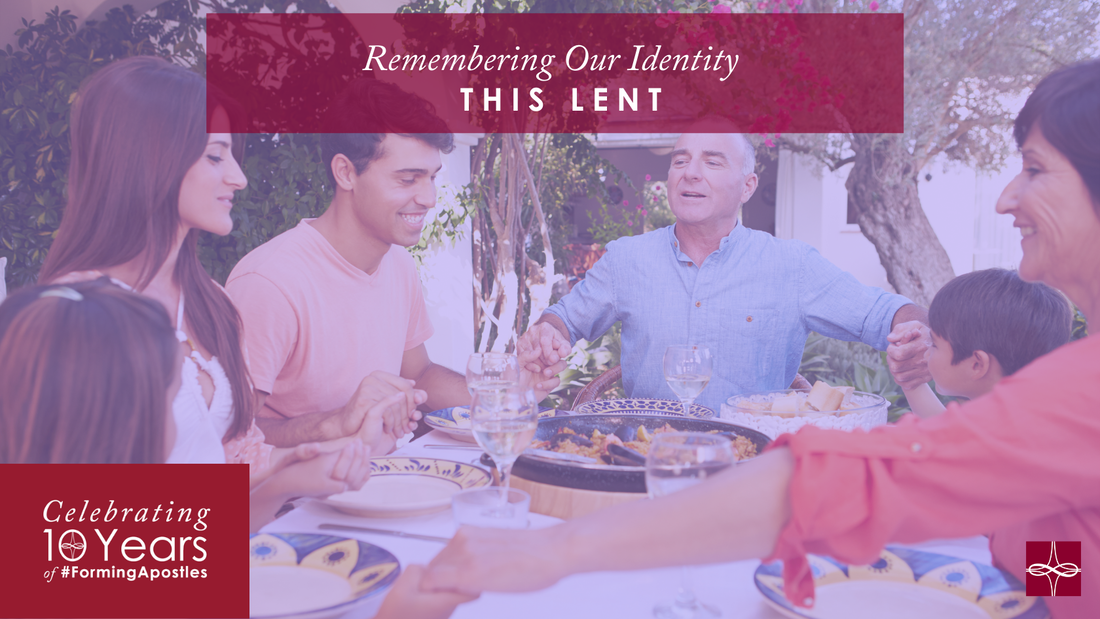



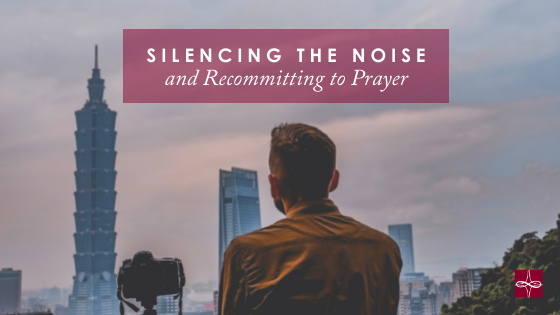




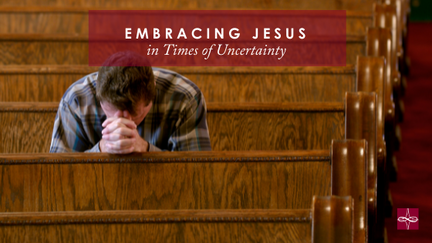

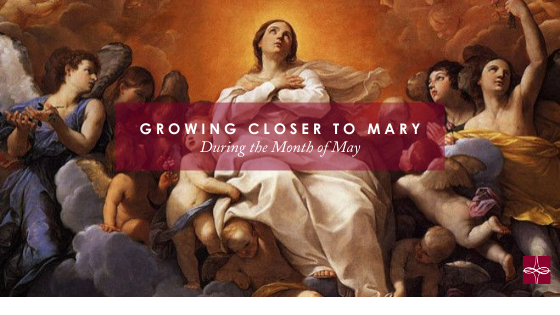


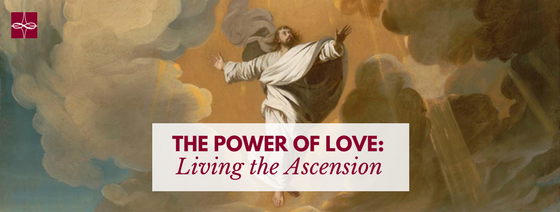

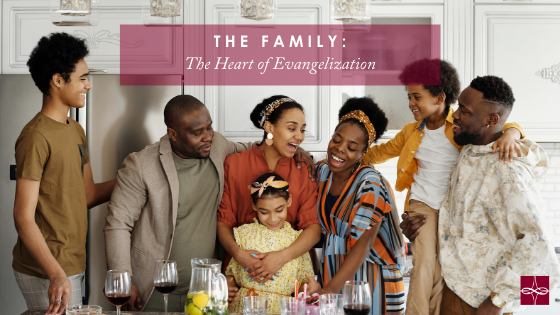

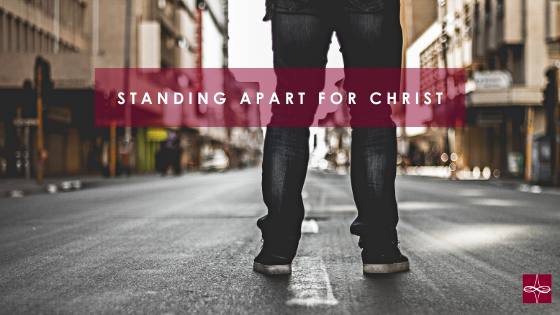






 RSS Feed
RSS Feed